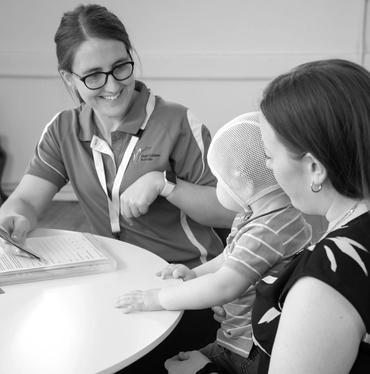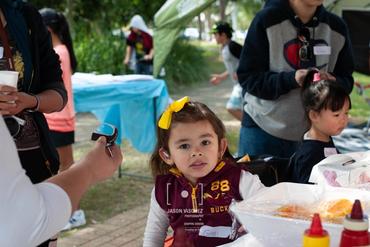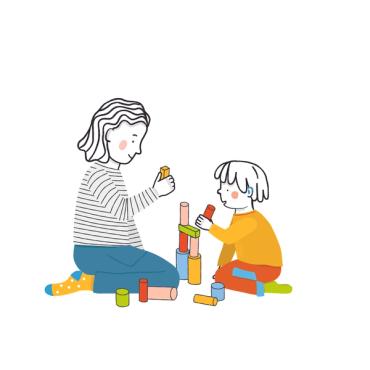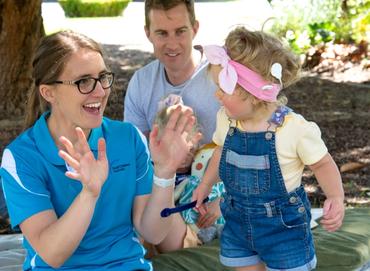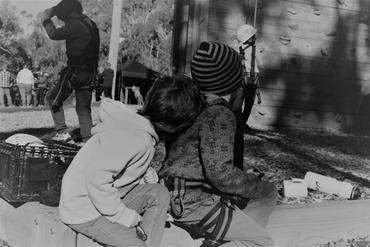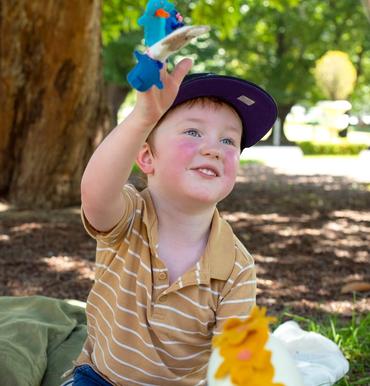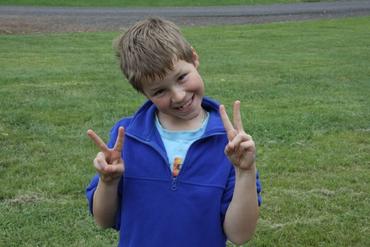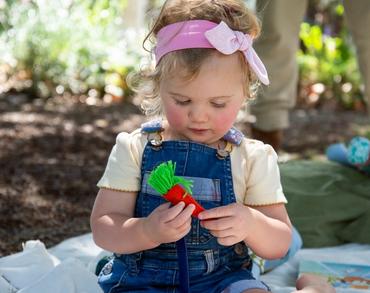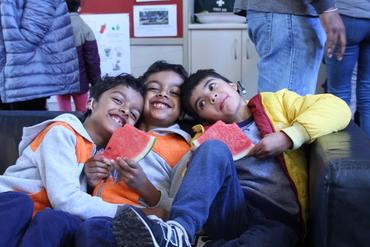Content Finder
There is a great deal of information available on the internet about deafness. We have collected a range of the key subjects parents told us were important to them - and you can check these out right here. Just use the drop-down filters to help focus on what interests you and we will feed in the relevant content.
Hearing tests- what to expect, what to look out for
Routine hearing tests are recommended for children of all ages. In Australia, we have free hearing tests conducted on all newborns. However, as your child grows their ability to hear can change quickly and hearing loss can develop at any stage. Aim to be vigilant for any signs of hearing loss.
Early childhood development - building foundations...
A child’s early years are a critical period for communication, language, and social-emotional development and lay crucial foundations for future learning and forming of identity.
Early Childhood intervention can make a difference
Early intervention aims to give your child the best possible start in life by supporting them to develop vital communication skills. It should start as soon as possible after your child has been diagnosed with a hearing issue.
Early signing. Hints, links and more
Within weeks of birth, babies start discovering the patterns and rules of the language used around them. This is true whether that language is spoken or signed.
Who do I need in my support team? Hints, links and more.
If you have a child who’s deaf or hard of hearing, it’s important to build a team around you who can support your journey. Your family are at the heart of that team, which will also include a range of health and education professionals.
Steps to starting your NDIS journey- Questions & Answers
There's a lot to consider when your child has been diagnosed with a hearing loss. When it comes to the NDIS, there may be extra matters to think about. We've spoken to parents about the common questions to ask when you first engage with the NDIS.
Bimodal bilingual choices.
One of the earliest choices you’ll need to make is how you’ll communicate with your child. Finding a form of communication everyone in your family can understand is very important. Your choice should reflect what’s best for your child and family.
Early intervention is a great way to start
Your child’s early years are a really important time for communication, language, and social-emotional development. This is your opportunity to lay crucial foundations for future learning and the forming of your child's identity.
The Importance of Rich Childhood Experiences.
When families and communities collaborate in positive ways, a deaf child's capacity to achieve their learning potential is significantly enhanced.
Family-Centered Practice in Early Intervention: A Comparison.
Early interventions programs should offer a wide range of services to cater to the diverse needs of families and encourage parents to be more involved.
Children Who are Deaf and Hard of Hearing with an Autism Spectrum Disorder (ASD).
Assessment and intervention for ASD can require adapting or modifying the usual approaches to suit the needs of deaf and hard of hearing children.
Bilingual Bimodal approach to Language Acquisition.
Parents can help improve their child's language development by providing rich language experiences led by their child's language preferences.
Parents using the Internet to Find Information.
Australian parents find the internet is a valuable addition to information provided by professionals.
Bilingual Programs: The Current State of Knowledge.
More research is needed, including studies reporting both reading and writing outcomes in sign bilingual programs.
Family- Centered Care and Early Intervention.
Making services more family- centered could help families enrol in early intervention more quickly.
Early Intervention Key to Improving Literacy Skills for Deaf Children.
There are great benefits for deaf children in having their parents read stories to them in sign language.
Language acquisition for deaf children: What linguists can do.
New evidence suggests that if children are exposed to a first language in the critical period of their first years, they may develop complete fluent use of any language.
A New discourse of Language Development in Deaf Children.
Children learning to communicate may benefit from using multiple modes of language- gestures, signs, spoken words and writing.
Enhancing Early Communication through Infant Sign Language.
With the right methods, it's possible to teach a baby as young as six months old to use a simple sign.
Advantages of Early Visual Language.
It's a myth that sign language will hold back a deaf or hard of hearing child from developing spoken language. It has been shown that spoken language skills and English literacy actually increase as children learn more gestures and signs.
Beyond Early Intervention: Supports for School-Aged Children.
Improved intervention strategies for school-aged children with cochlear implants is needed to support learning.
Signing with Babies and Children: A summary of findings.
For infants and toddlers, signing can help develop language skills, expand vocabulary and improve reading skills.
Best Practices in Family-Centered Early Intervention.
Family- Centered Early Intervention encourages active and enjoyable engagement to promote playful communicative interactions, family well-being and confidence in parenting and promoting your child's development.
What do early intervention specialists do?
Early intervention aims to give your child the best possible start in life by supporting them to develop vital communication skills. It should start as soon as possible after your child has been diagnosed with a hearing issue.
What does a speech pathologist do?
Speech pathologists (also sometimes called ‘speech-language pathologists’) are university-qualified allied health professionals who work with people experiencing communication difficulties.
Deafness and Diversity: Early Intervention
Advancing technology has provided children who are deaf or hard of hearing with additional needs, greater access to sound and language than ever before.
My story, my career path - Jules Batstone
Jules works full time and is a Senior Producer for Pollen, an award winning digital agency. He is deaf in one ear.
Principles and Guidelines for Early Intervention.
Once it has been confirmed that your baby or child is deaf or hard of hearing, early intervention is important.
Discovering Predictors to Successful Outcomes for Deaf or Hard of Hearing Children.
Early identification and intervention can lead to positive outcomes in age-appropriate language skills for deaf and hard of hearing children.
Interventions on parenting styles: a literature review.
Hearing parents can benefit from programs which boost their confidence in being able to raise a deaf or hard of hearing child.
About hearing loss - a summary
If your child has recently been diagnosed as being deaf or hard of hearing, you’ll hear a lot of new terminology that may sound confusing and even a little intimidating. It helps to understand a bit more about hearing loss, and the terms hearing professionals use to talk about it.

